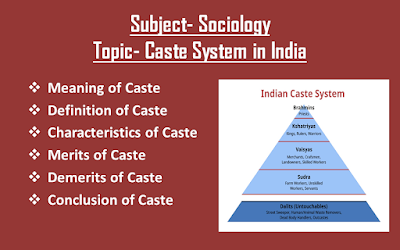Primary Groups- Meaning, Definition, Characteristics and Importance
# Meaning of Primary Groups
A primary group is made up of people who are emotionally close, known each other well and seeks each other’s company. People participate in primary groups throughout their roles.
A primary group is a small, intimate group of people who share a sense of belonging, identity, and closeness.
For example, family, neighborhood, close friends, relatives, etc. are the instances of primary group.
# Definition of Primary Groups
1. According to Charles Horton Cooley:- "A small, intimate group characterized by face-to-face interaction, mutual understanding, and a sense of belonging."
2. According to George Herbert Mead:- "A group that provides the individual with a sense of identity, self-concept, and social orientation."
3. According to Robert K. Merton:- "A group that provides emotional support, socialization, and a sense of belonging."
4. According to Emile Durkheim:- "A group that is characterized by mechanical solidarity, where individuals are united by shared experiences and traditions."
5. According to Max Weber:- "A group that is based on affectual ties, where individuals are united by emotional bonds and personal relationships."
6. According to Talcott Parsons:- "A group that serves as a primary source of socialization and identity formation for individuals."
# Characteristics of Primary Groups
1. Small in size:- Primary groups are smaller in size. Fewer than 20-30 people. Large number decreases intimacy and loose the bond of the group.
2. Close relationships:- Members know each other well and have strong emotional bonds.
3. Shared identity:- Members share a common sense of purpose, values, or goals.
4. Intimate interaction:- Members interact regularly and informally.
5. Long-term duration:- Primary groups often last for years or even a lifetime.
6. Face-to-face interaction:- Members interact in person, rather than solely online or through technology.
7. Emotional support:- Members provide emotional support and empathy to one another.
8. Sense of belonging:- Members feel a strong sense of belonging and connection to the group.
9. Informal structure:- Primary groups often have an informal structure, with no formal leadership or hierarchy.
10. Trust and loyalty:- Members trust and are loyal to one another.
# Importance of Primary Groups
1. Primary groups provide emotional support, comfort, and a sense of belonging.
2. Primary groups shape individual identity, values, and beliefs.
3. Primary groups offer a sense of security, stability, and predictability.
4. Primary groups facilitate socialization, learning, and personal growth.
5. Primary groups promote intimacy, trust, and deep relationships.
6. Primary groups support physical and mental well-being.
7. Primary groups foster a sense of responsibility, loyalty, and commitment.
8. Primary groups provide a network for shared resources and mutual aid.
9. Primary groups influence attitudes, behaviors, and life choices.
10. Primary groups form the foundation of social connections and community.
Watch video on YouTube





